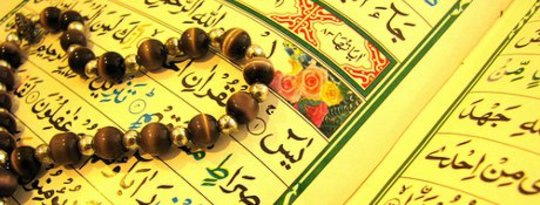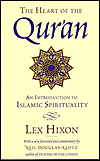
 o be Muslim in the universal sense is to be one who longs to turn completely toward the ultimate Source, in Arabic called Allah. Who is and who is not truly Muslim is a secret known only to Allah Most High. No human being can judge another concerning this most intimate experience of affirming and returning to the One Reality.
o be Muslim in the universal sense is to be one who longs to turn completely toward the ultimate Source, in Arabic called Allah. Who is and who is not truly Muslim is a secret known only to Allah Most High. No human being can judge another concerning this most intimate experience of affirming and returning to the One Reality.
The question of where a person stands along the exalted way of Islam, of whether one practices the five times daily prayer, or even which prophet one follows among the many sent by Allah, can only be a subject for dialogue between the soul and its All-Merciful Lord. There can be no compulsion or persecution in authentic Islam.
Whoever affirms and longs to return to the ultimate Source of the universe is the beloved spiritual sister or brother of the true Muslim. Since every soul is a ray from the Divine Light, this longing to turn and to return is the secret essence of each person. Thus all humanity, even all Creation, is Muslim.
The Shariah: The Path of Religious Discipline
The Shariah is the sharply focused dimension of Islam, where every aspect of spiritual practice and daily life is gracefully choreographed. Every movement of ablution and prayer, performing the pilgrimage, fasting, and giving alms is rich with meaning and power, for it was first made by the Prophet of Allah.
Through my close friendship with Sheikh Muzaffer, I have been able to glimpse the union of the two dimensions of Islam — universal, all-embracing, ecstatic love, and the careful precision of a deeply sanctified and morally committed daily life. Sheikh Muzaffer demonstrated the unity of these two modes: the Hagigah, or way of ultimate truth, and the Shariah, or path of religious discipline.
The most exalted mystical love and knowledge, which perceive the whole universe constantly returning into the Source, and even entirely merged in the Source, can be profoundly expressed through the faithfulness and precision of daily religious disciplines. In the case of historical Islam, this means to live life in detail as the beloved Prophet lived it, as documented by the Holy Qur'an and by the Prophet's own oral tradition.
Such harmony between the vision of the all-transcending truth and the humane activity of a dedicated life in society is the richest possible experience. This experience is, in fact, the fullness of being human. Personal and cultural being, the being of the universe, and the Source of Being are thus mysteriously integrated.
The Correspondence Between Divine Light & The Earthly Life of Humanity
Sheikh Muzaffer was known for the radiance of spirit with which he performed the daily prayers of Islam. In the simple, powerful movements of his prostrations, which are the same movements practiced by all Muslims, there shone forth the marvelous correspondence between the open expanse of Divine Light and the responsible earthly life of humanity.
One could be awakened to a more profound understanding of Islam simply by seeing Sheikh Muzaffer at prayer in his small shop beneath the grape vines in the booksellers' section of the Istanbul bazaar. In 1985, this Grand Sheikh breathed his last breath, forehead on his prayer carpet in prostration, while making midnight prayers in his home beside the Sea of Marmara.
Mystic Unity: Plunging Directly into the Divine Presence
 The practice of the Shariah, or the path of religious discipline, links together the highest saints and the simplest believers from every Islamic culture in the world into a single family. No one can experience the refreshing ablutions and peaceful prayers of Islam without sensing the quiet elation and deep unity shared by this vast spiritual family, far below the surface of cultural tensions.
The practice of the Shariah, or the path of religious discipline, links together the highest saints and the simplest believers from every Islamic culture in the world into a single family. No one can experience the refreshing ablutions and peaceful prayers of Islam without sensing the quiet elation and deep unity shared by this vast spiritual family, far below the surface of cultural tensions.
Repeating the Holy Name of Allah as one rinses the hands, mouth, nostrils, face, forearms, and feet three times with cool water in the traditional ablutions before prayer, one feels not only surprising physical refreshment, but also far-reaching purification of thought and emotion.
To face in the direction of the holy city of Mecca, allowing the entire body and mind to flow into the prostrations of Muslim prayer, awakens the sense of plunging directly into the Divine Presence. The physical space before one disappears, and the rich blackness of the Ka’bah, the sacred shrine in Mecca, appears mysteriously to the spiritual sensibility. One is then drawn closer and closer to this imageless and radiant blackness until all forms—one's own body as well as the universe itself—merge into the unfathomable Divine Mystery. This holy mystery is then recognized as the one Power performing the prayers and receiving the prayers, as both the act of praise and that which is being praised.
Although not always experienced by the surface mind, this mystic unity is the essence of the Islamic prayers into which the whole being of the Muslim plunges five times every day, not merely to fulfill a ritual requirement but to swim joyfully and peacefully in the ocean of Divine Love. The prayers are the union of Shariah and Haqiqah, the merging of formal religious practice with the mysterious truth of unity that transcends all forms and all traditions.
The Cumulative Effect of Prayer Pervades Daily Life
During the course of the five prayer periods every day, each of which is brief but whose cumulative effect pervades life completely, the opening chapter of the Holy Qur'an, the Sura Fatihah, is repeated some forty times. In addition to these daily repetitions, this sura is repeated whenever one passes the tomb of a saint, when giving thanks after a meal, or when seeking the protection of God from various physical or spiritual dangers. Over a thousand times every month, the illuminating energy of this fundamental prayer from the Holy Qur'an is inwardly invoked by the Muslim, until it becomes a constant ringing presence in the deeper regions of awareness.
According to the oral tradition of the Prophet, the entire power of the Qur'an is contained in this brief sura, the chanting of which allows one to participate in the mysterious descent of the Holy Qur'an to earth, the process by which the ultimate Source transmitted Divine Words to humanity through the perfectly human body and mind of the Prophet of Allah. This mystical participation of our entire being in the descent of the Divine Words is what Heart of the Koran attempts to illuminate for English readers in every culture of the modern world.
I began to read the interpretation of the Qur'an by Professor A. J. Arberry and, following the instructions of my Sheikh, to repeat seven hundred times every day the central Islamic affirmation la ilaha illa'llah, signifying: "There is nothing worthy of worship other than the ultimate Source of the universe, whose most holy Arabic name is Allah." According to the mystical tradition of Islam, this affirmation implies that nothing exists apart from Allah, the Most High, and that every being is a ray of light and power from the ever-present Source.
Reprinted with permission of the publisher,
Quest Books/Theosophical Publishing House.
©1988, 2003. www.questbooks.net
 Article Source:
Article Source:
The Heart of the Qur'an: An Introduction to Islamic Spirituality
by Lex Hixon.
Click here for more info and/or to order this book.
About the Author
 Lex Hixon, Ph.D., an accomplished poet, philosopher, and spiritual practitioner, also wrote Mother of the Buddhas and Mother of the Universe. Lex Hixon's literary works came about from direct experience in the field of spirituality combined with intellectual refinement and human sensitivity. Being intensely involved in both the cultures and religions of the world, his was a view of universal acceptance honed by discrimination and dedicated to harmony based on unity. His final book entitled "Living Buddha Zen" was released just prior to his death in 1995.
Lex Hixon, Ph.D., an accomplished poet, philosopher, and spiritual practitioner, also wrote Mother of the Buddhas and Mother of the Universe. Lex Hixon's literary works came about from direct experience in the field of spirituality combined with intellectual refinement and human sensitivity. Being intensely involved in both the cultures and religions of the world, his was a view of universal acceptance honed by discrimination and dedicated to harmony based on unity. His final book entitled "Living Buddha Zen" was released just prior to his death in 1995.
Watch a video: Heart of the Koran (preview)
























